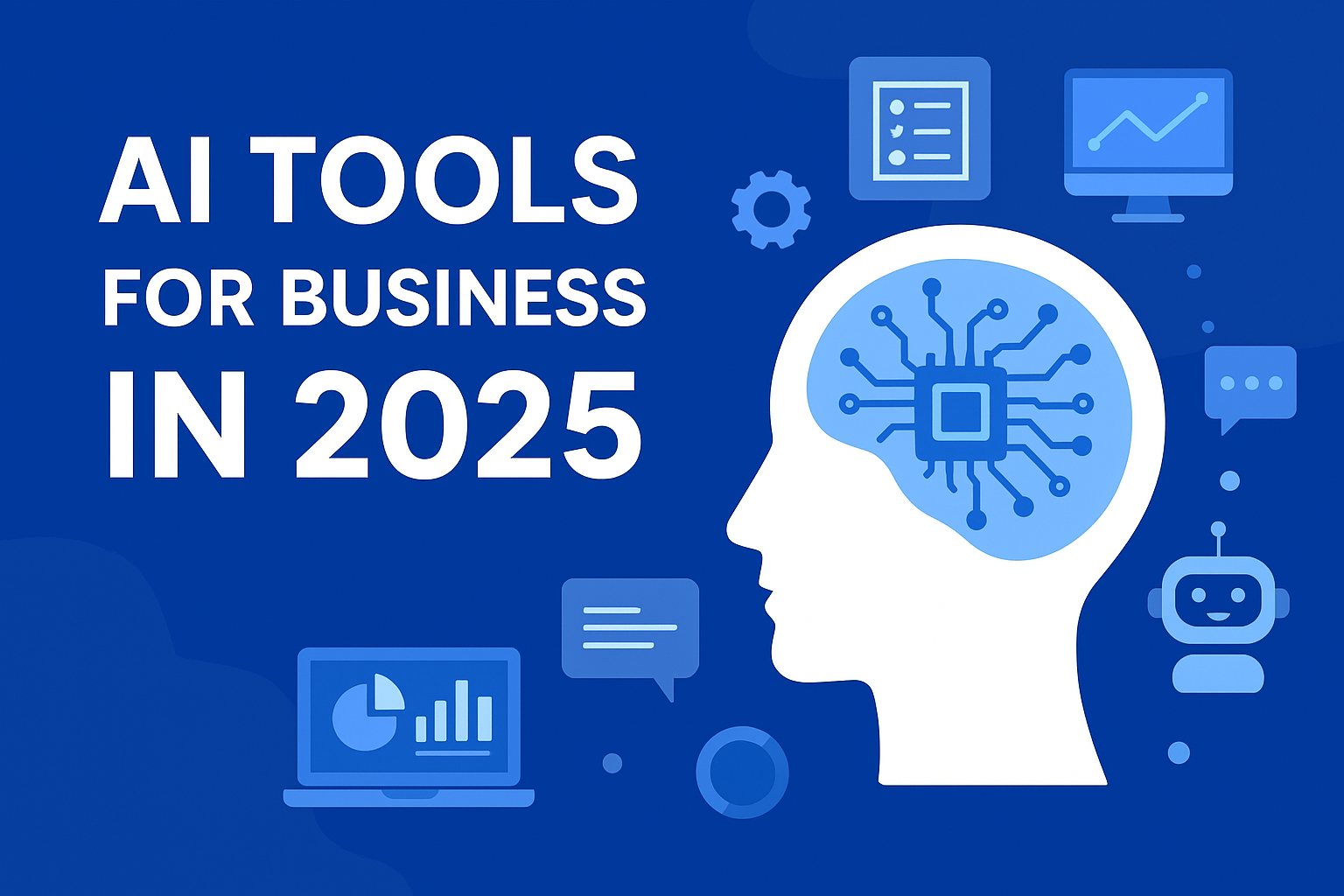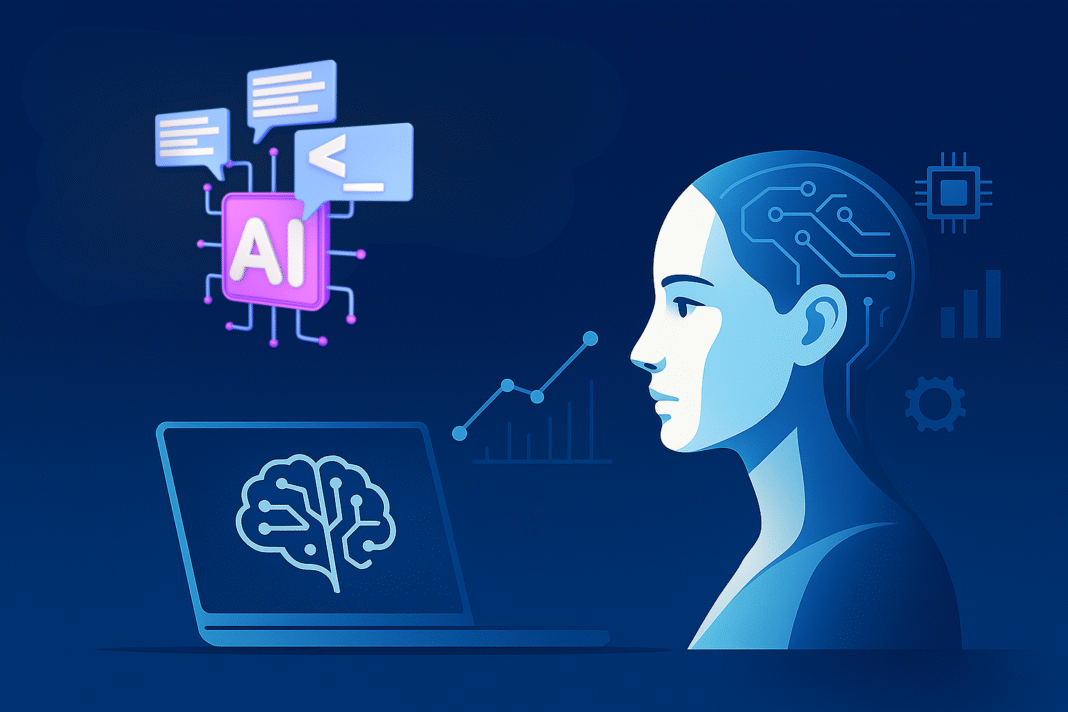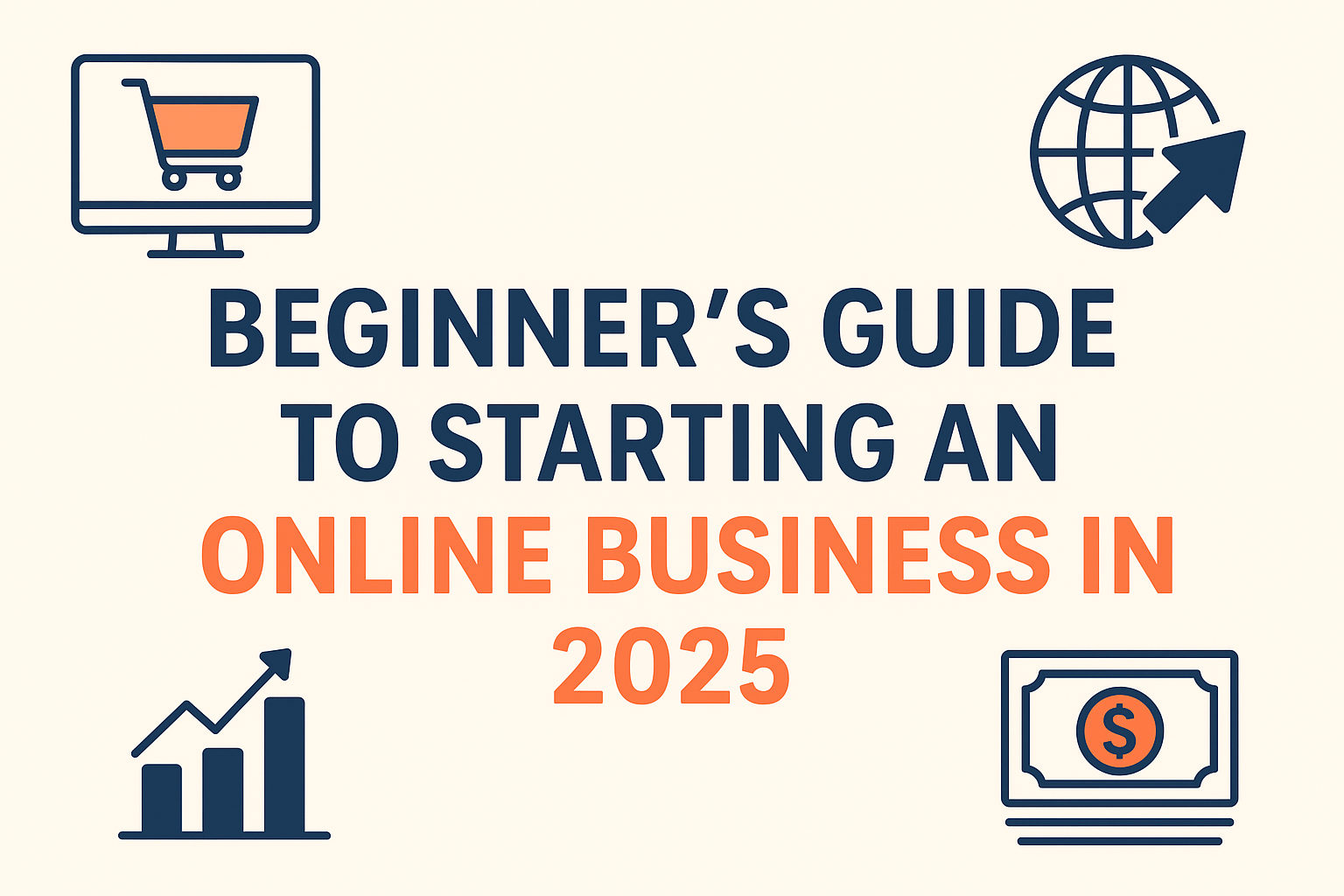Discover the advantages and disadvantages of AI tools for business in 2025 and how they’re shaping the future of work.
Introduction
Artificial Intelligence (AI) is no longer a futuristic dream. In 2025, AI tools have become the backbone of business growth. From automating daily tasks to predicting customer behavior, AI is helping companies save time, reduce costs, and increase profits. Businesses that adopt AI today gain a huge advantage over those who still rely on old methods.
This article explores the top AI tools for business in 2025, their benefits, and how you can use them to stay competitive in the digital world.
1. AI-Powered Customer Support
Mention: Traditional customer service often struggles with delays and limited working hours.
Benefit: With AI chatbots and virtual assistants, businesses can provide 24/7 customer support, answer frequently asked questions, and even handle complex queries using natural language processing. Tools like ChatGPT-powered bots and Intercom AI reduce workload and boost customer satisfaction.
Call-to-action: If you want to keep customers happy, adopting AI-powered customer support is no longer optional—it’s essential.
2. AI for Marketing & Content Creation
Mention: Content is king, but creating high-quality blogs, ads, and videos takes time.
Benefit: Tools like Jasper AI, Writesonic, and Copy.ai generate SEO-friendly blog posts, ad copies, and product descriptions in seconds. AI also helps in personalizing marketing campaigns by analyzing customer data.
Call-to-action: Use AI content tools to save hours of writing and create content that ranks higher on Google.
3. AI Analytics & Business Intelligence
Mention: Raw data means nothing without insights.
Benefit: AI analytics platforms like Tableau AI, Power BI with Copilot, and Google Cloud AI transform big data into clear dashboards, helping managers make smarter decisions. Predictive analytics can forecast sales trends, optimize inventory, and reduce risks.
Call-to-action: Businesses that rely on data-driven decisions outperform competitors—make AI analytics your secret weapon.
4. AI in Finance & Accounting
Mention: Managing numbers manually is time-consuming and prone to errors.
Benefit: AI tools like QuickBooks AI, Xero AI, and FreshBooks Smart AI automate invoicing, expense tracking, and fraud detection. This saves money and ensures financial accuracy.
Call-to-action: Switch to AI-driven accounting and spend more time on strategy, not spreadsheets.
5. AI Recruitment & HR Tools
Mention: Hiring the right talent can take months.
Benefit: AI recruitment platforms such as HireVue AI, LinkedIn Recruiter AI, and Workday AI screen resumes, analyze candidate fit, and even conduct video interviews. They save HR teams countless hours while ensuring better hires.
Call-to-action: Use AI hiring tools to find the perfect employees faster and smarter.
6. AI Tools for Project Management
Mention: Managing projects with multiple team members can get messy.
Benefit: AI platforms like ClickUp AI, Asana AI, and Notion AI predict delays, assign tasks automatically, and improve team productivity. AI assistants suggest the fastest way to complete work.
Call-to-action: Adopt AI project tools to stay ahead with better planning and execution.
7. AI Cybersecurity Solutions
Mention: Businesses face more cyber threats than ever.
Benefit: AI-powered security tools like Darktrace AI and CrowdStrike Falcon detect suspicious activities in real-time and prevent attacks before they happen.
Call-to-action: Protect your data and reputation with AI cybersecurity.
8. AI Tools for Sales Automation
Mention: Sales teams often waste time on manual follow-ups.
Benefit: AI tools such as HubSpot AI and Salesforce Einstein automate lead scoring, recommend sales actions, and personalize outreach. This improves conversions and revenue.
Call-to-action: If you want higher sales, let AI handle repetitive tasks while your team closes more deals.
9. AI for Design & Creativity
Mention: Businesses need eye-catching designs and videos to stand out.
Benefit: AI design tools like Canva AI, Runway ML, and DALL·E 3 help create stunning visuals, logos, and even video ads instantly.
Call-to-action: Make your brand unforgettable with AI-powered design tools.
10. AI Virtual Personal Assistants
Mention: Business owners often juggle too many tasks.
Benefit: Tools like Otter.ai, Notion AI, and Microsoft Copilot act as personal assistants that schedule meetings, write notes, and manage emails.
Call-to-action: Free up your time by letting AI assistants handle the routine.
Advantages of AI Tools for Business
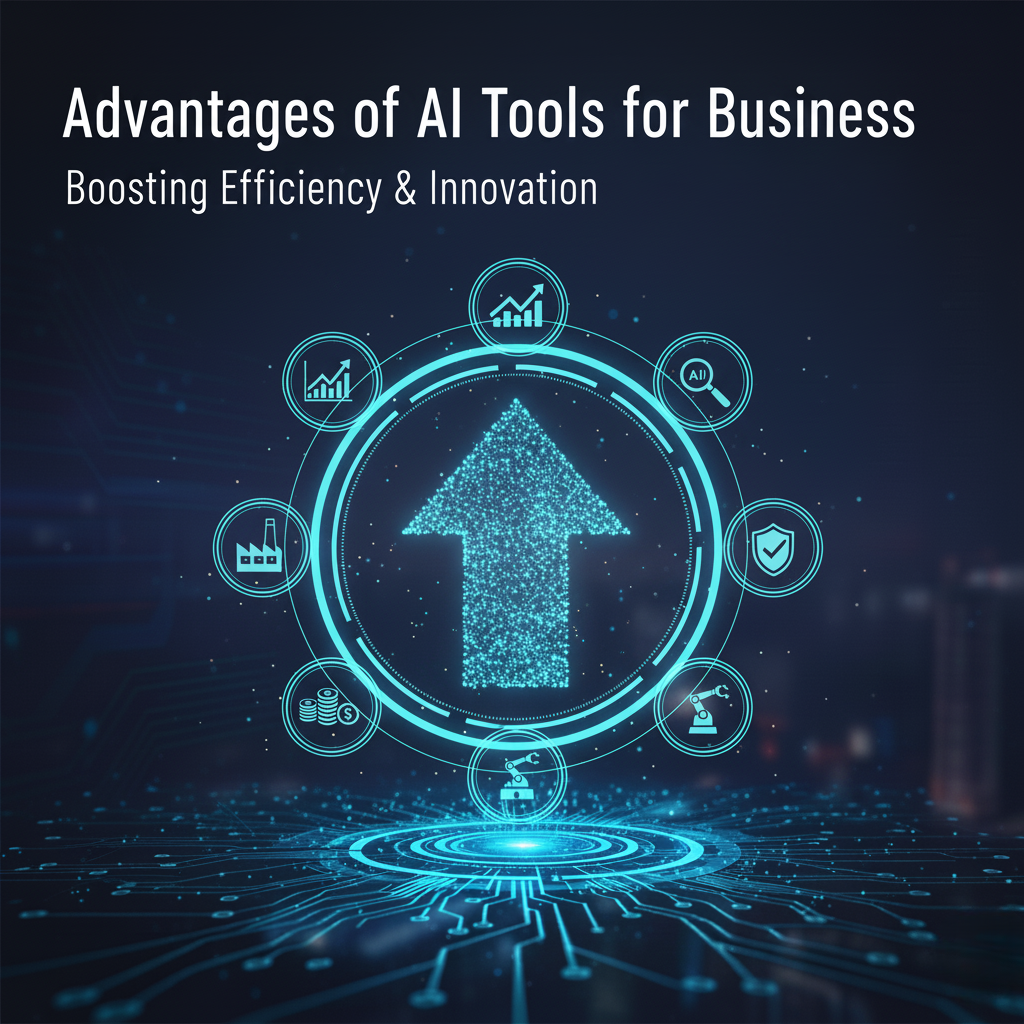
1. Saves Time and Increases Productivity
AI automates repetitive tasks like data entry, email responses, and scheduling. Tools like Notion AI, ClickUp AI, and Microsoft Copilot help employees focus on important work instead of wasting time on small tasks.
2. Improves Customer Service
AI chatbots and voice assistants provide 24/7 customer support, answer FAQs, and reduce waiting times. This keeps customers happy and loyal.
3. Smarter Business Decisions
AI analytics tools, such as Google Cloud AI and Tableau AI, analyze large amounts of data quickly. They help managers understand trends, predict customer behavior, and make better business strategies.
4. Reduces Costs
By automating processes, AI lowers the need for extra staff. For example, AI-powered accounting tools cut down on errors and reduce financial risks.
5. Enhances Marketing and Sales
AI tools like Jasper AI, HubSpot AI, and Salesforce Einstein personalize ads, recommend products, and help sales teams close deals faster. Businesses enjoy higher conversion rates and more profit.
6. Stronger Cybersecurity
AI systems such as Darktrace AI and CrowdStrike Falcon detect unusual activities and stop cyber-attacks before they happen, protecting company data.
Disadvantages of AI Tools for Business
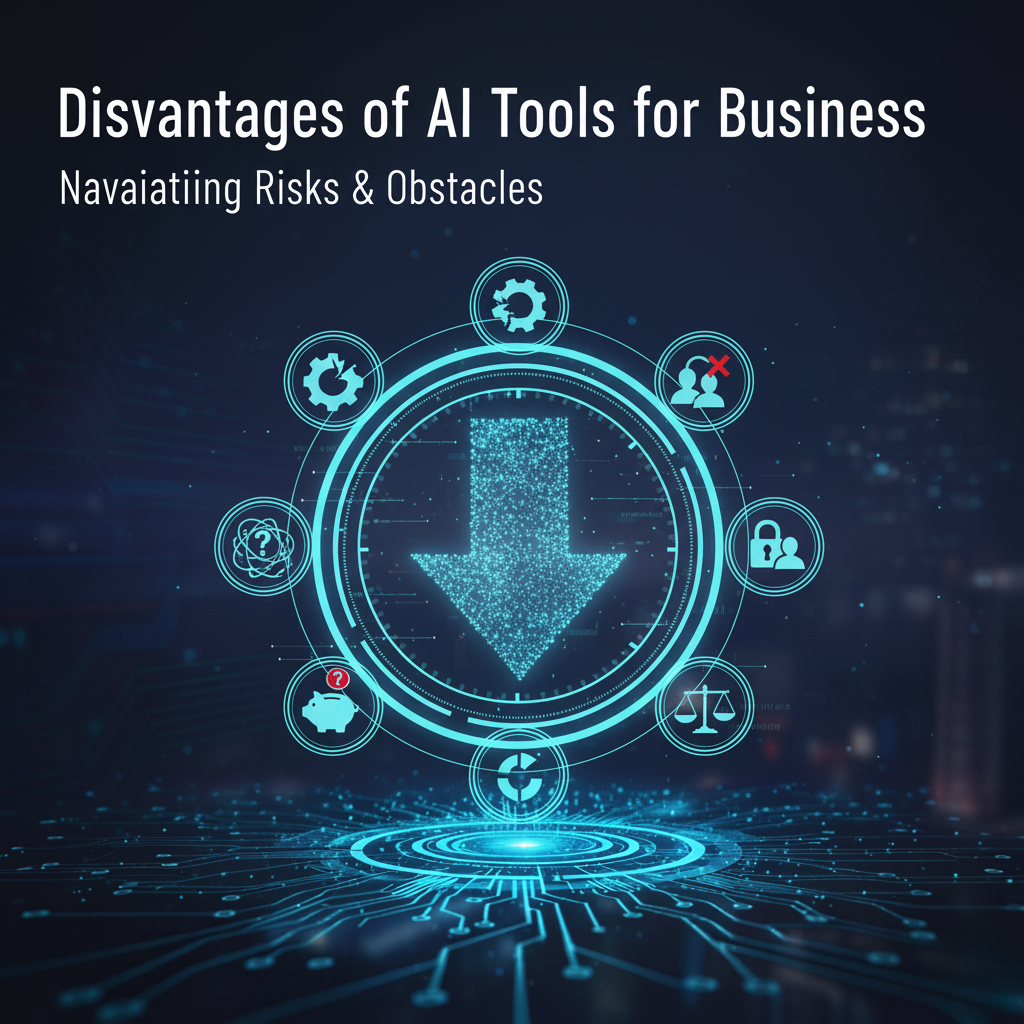
1. High Setup Costs
Many advanced AI tools require big investments. Small businesses may find it expensive to adopt the latest AI technology.
2. Job Replacement Concerns
Since AI automates many tasks, some employees worry about losing their jobs. This can cause fear and resistance in the workplace.
3. Data Privacy Risks
AI depends on large amounts of customer data. If not managed properly, this can lead to privacy issues or even data leaks.
4. Lack of Human Touch
While AI chatbots are fast, they can’t always replace human empathy. Customers may feel frustrated if their complex problems are not solved by AI.
5. Requires Constant Updates
AI technology changes quickly. Businesses must update tools regularly, which can be costly and time-consuming.
Conclusion
In 2025, AI is no longer optional—it’s the engine that powers modern businesses. Whether it’s customer service, marketing, finance, or cybersecurity, AI tools are helping companies work faster, smarter, and more profitably.
👉 The businesses that embrace AI now will lead tomorrow. Don’t wait—start integrating AI tools into your business today.
FAQ
1. What are AI tools for business in 2025?
AI tools are software programs that use artificial intelligence to help businesses automate tasks, analyze data, improve customer service, and make smarter decisions.
2. How do AI tools benefit businesses in 2025?
AI tools save time, reduce costs, and boost productivity. They also provide better customer service, improve marketing strategies, and protect data with advanced cybersecurity.
3. Are AI tools expensive for small businesses?
Some advanced AI tools can be costly, but many affordable options exist for small businesses. Tools like Canva AI, ChatGPT, and Notion AI are budget-friendly and effective.
4. Can AI tools replace human workers?
AI can automate repetitive tasks, but it cannot fully replace human creativity, empathy, and decision-making. The best businesses use AI to support employees, not replace them.
5. What are the disadvantages of AI tools in business?
The main disadvantages are high setup costs, possible job replacement fears, data privacy risks, lack of human touch in customer service, and the need for constant updates.
6. Which industries benefit the most from AI tools in 2025?
Industries such as e-commerce, healthcare, finance, marketing, IT, and customer service benefit the most from AI because they rely heavily on data and automation.
7. What are the best AI tools for business in 2025?
Some of the top AI tools include:
- ChatGPT / Jasper AI – content creation & customer support
- HubSpot AI / Salesforce Einstein – sales & marketing automation
- Darktrace AI / CrowdStrike – cybersecurity
- Tableau AI / Power BI with Copilot – business analytics
- ClickUp AI / Notion AI – project management
8. Is AI safe for business use?
Yes, AI tools are generally safe, but businesses must use trusted providers, protect customer data, and follow cybersecurity best practices to reduce risks.
9. How will AI affect jobs in 2025?
AI will change jobs rather than completely remove them. Many repetitive tasks will be automated, but new jobs in AI management, development, and data analysis will grow.
10. Should every business use AI tools in 2025?
Not every business must use advanced AI, but adopting at least basic AI tools can give any company a competitive edge in today’s digital world.





